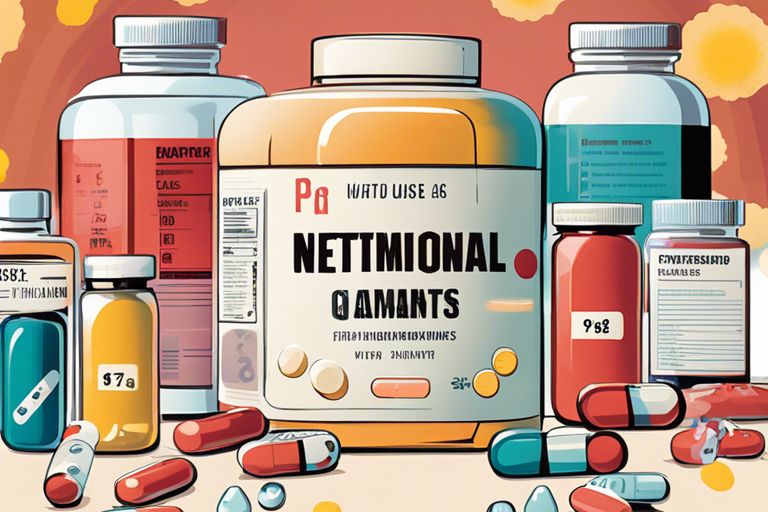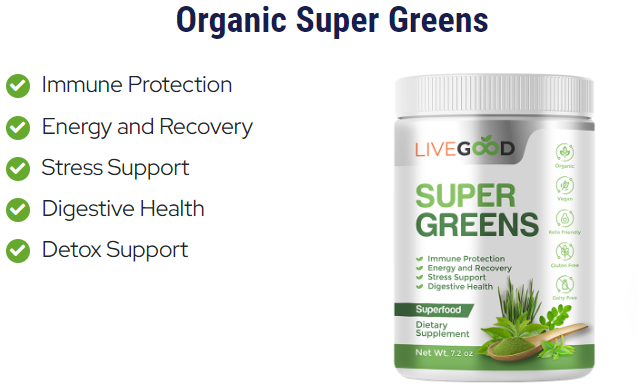Embarking on a journey to optimize your health through nutritional supplementation can be both daunting and exciting. While supplements can provide a range of benefits, it’s important to be aware of the potential risks that come with them. In this blog post, we will explore the potential dangers associated with nutritional supplements, as well as how to safely incorporate them into your wellness routine.
Potential Risks of Nutritional Supplements
By taking nutritional supplements, you may be aiming to improve your overall health and wellness. However, it’s important to be aware of the potential risks associated with these products. While many supplements are safe when taken as directed, there are several factors that can increase the risk of adverse effects.
Risk of Overdose and Toxicity
When you consume high doses of certain vitamins and minerals through supplements, you run the risk of overdosing, which can lead to toxicity. Vitamins A, D, E, and K, as well as iron and calcium are particularly concerning, as they can accumulate in your body and reach dangerous levels. Too much of these nutrients can result in symptoms such as nausea, fatigue, and even organ damage. It’s important to follow the recommended dosage guidelines and seek guidance from a healthcare professional.
Interactions with Medications
If you are taking prescription medications, it’s crucial to be wary of potential interactions with nutritional supplements. Certain supplements can interfere with the effectiveness of your medications or worsen side effects. For example, St. John’s Wort, often used for mood support, can reduce the effectiveness of birth control pills and antidepressants. Always consult with your doctor or pharmacist before adding a new supplement to your routine.
Contamination and Adulteration Concerns
Quality control is a significant issue in the supplement industry, and contamination and adulteration are real concerns. Some supplements have been found to contain harmful substances such as lead, arsenic, or even prescription drugs that are not listed on the label. These contaminants can pose serious health risks, so it’s crucial to purchase supplements from reputable brands and retailers.
False Health Claims and Mislabeling
Another risk associated with nutritional supplements is the potential for false health claims and mislabeling. Some products may promise unrealistic benefits or exaggerate their effectiveness, leading you to believe they can cure or prevent certain health conditions. Additionally, mislabeling can lead to unintentional overdosing or consuming allergens. When choosing a supplement, be skeptical of exaggerated claims and prioritize products with third-party testing and certification.
At-Risk Populations
Despite the potential benefits of nutritional supplements, there are certain populations that may be at higher risk of experiencing adverse effects. It is important to understand the specific risks associated with taking supplements, especially for vitamin and mineral supplements, before incorporating them into your diet.
Pregnant Women
Pregnant women are at an increased risk when it comes to taking nutritional supplements. While certain vitamins and minerals are essential for a healthy pregnancy, such as folic acid and iron, taking too much of certain supplements can be harmful to both you and your baby. It’s crucial to consult with your healthcare provider before taking any supplements during pregnancy to ensure you are meeting your specific nutritional needs without putting yourself or your baby at risk.
Children and Adolescents
Children and adolescents have unique nutritional needs as they are still growing and developing. While it may be tempting to give your child a multivitamin or other supplements to ensure they are getting all the nutrients they need, it’s important to remember that overdosing on certain vitamins and minerals can be dangerous for young individuals. It’s best to focus on providing a balanced diet rich in nutritious foods rather than relying on supplements.
Individuals with Pre-existing Health Conditions
If you have pre-existing health conditions, taking nutritional supplements may interact with your medications or exacerbate certain health issues. For example, certain supplements can interfere with blood clotting or blood pressure medications. It’s crucial to discuss any supplement use with your healthcare provider to ensure it won’t negatively impact your existing health conditions.
Elderly Populations
As you age, your body’s ability to absorb certain nutrients may decline. While this may lead to a higher likelihood of supplement use, it’s important to be cautious. Older adults are at a greater risk of overdosing on certain vitamins and minerals, and excessive supplementation can lead to adverse effects. It’s advisable to get your nutrient levels checked and consult with your healthcare provider to determine if supplementation is necessary for your specific needs.

Regulatory Challenges
Lastly, when considering the potential risks of taking nutritional supplements, it’s crucial to recognize the regulatory challenges that exist in the supplement industry. Unlike prescription medications, nutritional supplements are not as heavily regulated by the Food and Drug Administration (FDA). This means that there may be harmful effects of supplements that can send you to the emergency department, without the same level of oversight in place.
Variability in Manufacturing Standards
One of the major regulatory challenges when it comes to nutritional supplements is the variability in manufacturing standards. Unlike pharmaceutical drugs, which must adhere to strict quality control measures, supplements do not always have the same level of oversight. This means that the quality and purity of supplements can vary significantly between different brands and manufacturers, potentially putting your health at risk.
Lack of Stringent Testing Requirements
Another issue in the supplement industry is the lack of stringent testing requirements. While pharmaceutical drugs undergo extensive testing for safety and efficacy before they can be marketed to the public, supplements are not always held to the same standards. This lack of thorough testing means that the potential risks and side effects of supplements may not be fully understood before they are available for purchase.
The Role of FDA and Other Governing Bodies
Finally, the role of the FDA and other governing bodies in regulating the supplement industry presents a significant challenge. While the FDA does have some authority to regulate supplements, the process is not as rigorous as it is for pharmaceuticals. This means that there may be less oversight in place to ensure the safety and efficacy of the supplements you may be taking. It’s important to be aware of this potential risk when considering adding nutritional supplements to your routine.
Safe Supplement Practices
To ensure that you are taking nutritional supplements safely, it is important to be aware of certain practices. While supplements can offer benefits, they also come with potential risks. As you continue to incorporate them into your routine, consider following safe supplement practices to minimize these risks and protect your health. According to a report from Everyday Health, there are various popular supplements that may have hidden dangers, so it’s important to be cautious and informed.
Guidelines for Selecting Supplements
When selecting supplements, it’s crucial to choose products that are third-party tested and certified. Look for labels from organizations such as NSF, USP, or ConsumerLab.com, which indicate that the supplement has been independently verified for quality and purity. Additionally, opt for supplements with simple, transparent ingredient lists and avoid those with unnecessary additives or fillers. Remember to research the brand and product, and consider seeking recommendations from healthcare professionals.
Importance of Consulting Healthcare Professionals
Prior to starting any new supplement regimen, it is essential to consult with a healthcare professional. Your doctor or a registered dietitian can help you determine whether a specific supplement is appropriate for you based on your individual health status, current medications, and dietary needs. They can also offer guidance on proper dosages and potential interactions with other supplements or medications you may be taking. Avoid making assumptions about supplement usage and seek professional advice to ensure the safest and most effective outcomes for your health.
Potential Risks of Taking Nutritional Supplements
Now, you have learned about the potential risks of taking nutritional supplements. It is important to understand that while supplements can offer many benefits, there are also potential risks associated with their use. Risks can include adverse side effects, interactions with medications, and the potential for harmful contaminants. It is crucial to consult with a healthcare professional before beginning any new supplement regimen to ensure it is safe for your specific health needs and to minimize any potential risks associated with their use.


